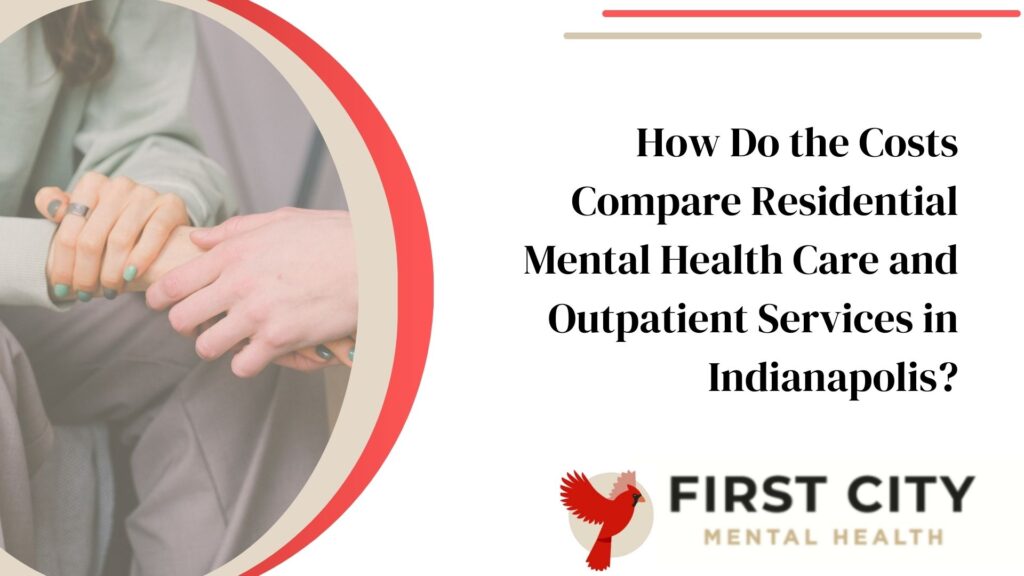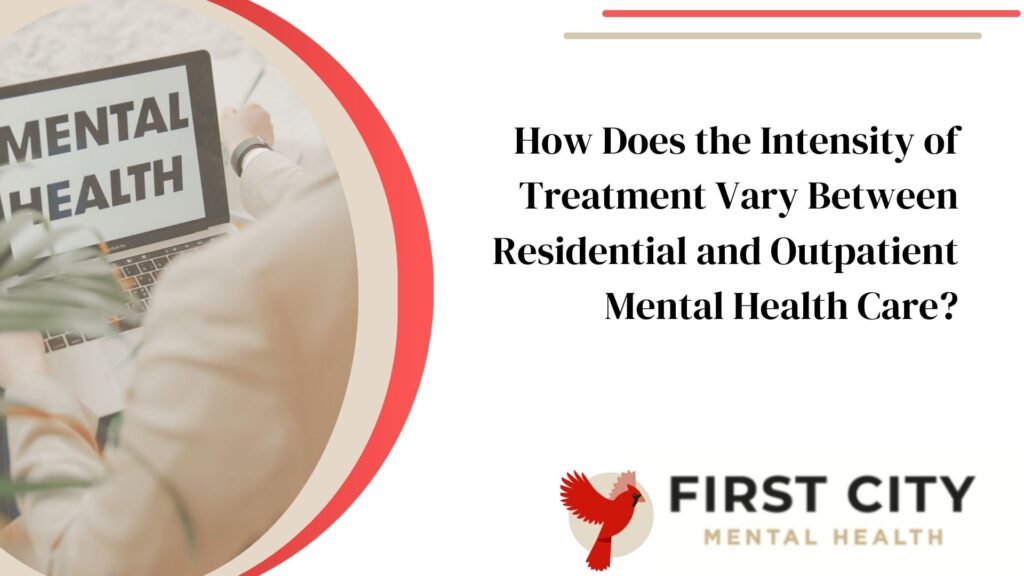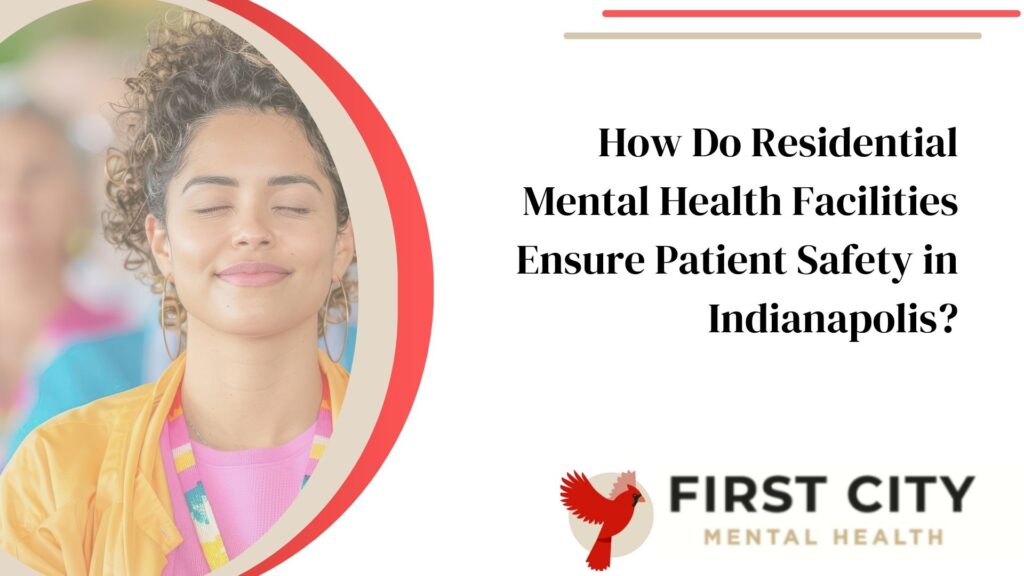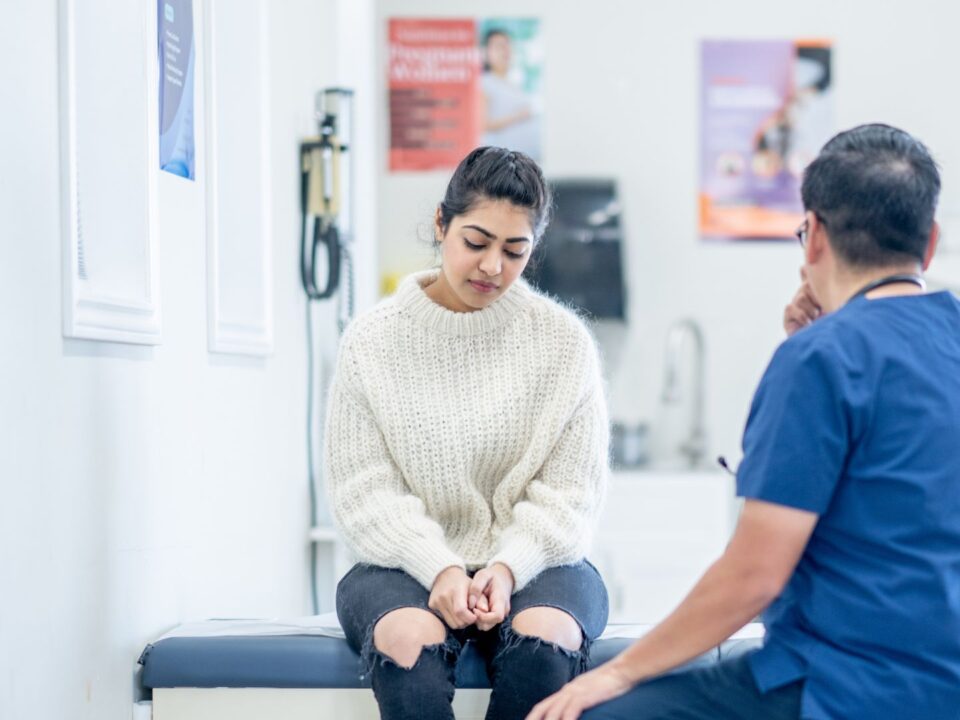
How Can I Enroll in a Residential Mental Health Program in Indianapolis?
January 15, 2025
How Can I Enroll in an Inpatient Mental Health Facilities in Indianapolis?
January 15, 2025In Indianapolis, nearly one in five people struggle with mental health issues. It would help if you had options; lucky for you, this city’s got them. From therapy to support groups, mental health treatment Indianapolis has all the mental health programs, and you’ll discover resources that speak directly to your unique needs.
Long-term strategies? That’s where community involvement works. Together, we create a caring environment. It’s not just therapy; it’s really about learning. You can take control of your mental well-being.
Key Takeaways
- Residential mental health programs offer a more structured, immersive experience. This setting can be more beneficial for those who require more intensive support than the flexibility of outpatient services.
- Costs can vary widely. Typically, residential care costs more than outpatient services due to the more comprehensive nature of the care.
- Residential programs tend to have more extended treatment periods and provide consistent care, while outpatient services offer shorter, more flexible treatment schedules.
- Treatment is often more intense in residential care, providing 24/7 support and extensive treatments.
How Do Residential Mental Health Programs Differ From Outpatient Services in Indianapolis?
These are live-in residential mental health Indianapolis centers where you or your loved one can get 24-hour care. It’s like moving into a dedicated space designed purely for recovery.
This option is more suitable for people experiencing severe mental health issues or substance use disorders. Why? Well, because it provides full-time support and supervision, which is essential when you’re facing a difficult situation.
Delving Into Intensive Outpatient Programs (I.O.P.s)
It’s essential to start by mentioning Intensive Outpatient Programs, or I.O.P.s, which are very common in Indiana. These are more flexible than residential programs. You don’t even have to sleep over. That means you can continue living at home and enjoy daily life.
They don’t come free in time — generally around 3-4 days a week and 3-4 hours each day. This way, you get more support than regular therapy but less than you’d get in a residential program.
In I.O.P.s, you will combine individual therapy, group therapy, and skills training. They include medication management to keep everything on track. Most programs take 30-35 days, but it varies based on individual progress. You can even plan your sessions around your work or family commitments.
This flexibility allows you to handle your duties while focusing on your healing. When comparing these two, you have to consider your specific needs.
Residential programs are ideal if you need a lot of support, especially if you have severe conditions. They provide a defined environment that allows people to escape some daily stresses.
How Do the Costs Compare Residential Mental Health Care and Outpatient Services in Indianapolis?

Comparing the Costs of Residential Care
Residential mental health care provides a guided space where you can live and get the necessary assistance. It’s a space built out for your healing and your growth. It’s as if you are in a home environment, with support available anytime.
In mental health facilities Indianapolis can range significantly. They can also vary based on the quality of care and amenities you receive. Let’s get more granular about that.
In a residential setup, you’re not just paying for treatment. You’re also covering your stay, meals, and sometimes even activities. You’re paying for the all-inclusive resort with therapy sessions and a month’s worth of groceries. This makes it pretty pricey, sometimes costing thousands of dollars every month. You can think of that as renting a place with extra healthcare.
Residential care usually means more intensive treatment. You’ve got a team of pros standing by 24/7 to help. This high level of personalized care can drive up the cost. It’s like an entire team is working with you to help you get back on track.
Now, you might be wondering about insurance. While some insurance plans cover residential care, the extent may vary. Sometimes, you’ll need to pay more out of your pocket if your plan only covers some of the various services. It’s best to verify this with your provider to prevent surprises.
What Is the Duration of Treatment in Residential Mental Health Programs vs. Outpatient Services?
Residential Mental Health Programs
Residential programs are much like going to a place where you get 24/7 assistance. These programs range from 30 days up to six months. It may seem like a long time, but it gives you plenty of time to heal and learn new skills.
The setting is close to home, so you can focus on your recovery without the pressures of daily life. This mental health facilities in Indianapolis.
treatment is best for people who require intensive support and for those who have had trouble with outpatient options. Studies suggest that at least 30 to 45 days in a residential program greatly increases your chance of long-term health and happiness.
This commitment can make a tangible impact on your overall well-being. It gives you time to work through the tough stuff and build a decent foundation for your future. If you’re willing to travel for care, you could have even better success rates. That change in environment can sometimes be just the ticket to get you started on your recovery journey.
Outpatient Services
Outpatient services are incredibly flexible. This is ideal for friends with everyday obligations they can’t abandon. These programs fit right into your schedule. You can conveniently attend your appointments and return to work, school, or home afterward.
They’re usually most effective for people with less severe challenges. You still get professional help without having to live at the facility. An example of outpatient care is the Partial Hospitalization Program (PHP) for teens.
In this setup, teens live at home. They get treatment at an outpatient clinic or hospital daily, five days a week. The training is constant, meaning they remain in touch with their family and friends, which is key to their recovery.
Afterward, they may transfer to an Intensive Outpatient Program (IOP). In this phase, they go to therapy multiple days a week and then transition into just weekly treatment. This slow approach allows them to reacclimate to the everyday world while continuing to receive support.
Inpatient and Step-Down Care
There’s inpatient care. It sometimes occurs in a psychiatric hospital or unit, but it never extends beyond 30 days. It’s short-term and helps you stabilize when things are rock-bottom. Many then turn to a residential treatment center for additional support after getting care in an inpatient hospital. Others opt to step down to outpatient services for continued treatment.
For teens, the journey often begins in an inpatient unit. From there, they go to a residential program, outpatient care, and weekly therapy or support groups at a community center.
This step-down process is like training wheels on a bike. It gives you the support you need while you’re learning to ride on your own. Each step helps build the skills and confidence to manage mental health challenges in the real world.
After completing the youth outpatient or another program, teens usually move to a lower level of care. This often takes place through weekly therapy sessions with a therapist.
How Does the Intensity of Treatment Vary Between Residential and Outpatient Mental Health Care?

Residential mental health treatment is like pausing your usual life and entering an environment specifically for healing. There is 24/7 emotional and medical support here— a huge difference. This setup is great if you need to avoid everyday stressors and triggers.
Think of it as a safe bubble where all you do is get better. Experts recommend committing to the program for at least 90 days to ensure you get the most out of it. You’ll meet others on a similar journey and have access to various therapies, from individual counseling to group sessions.
Residential programs often provide PHP as a step down for those who live nearby. If you’re leaving residential care, PHP also allows you to live at home. You can still get intensive treatment during the day.
Outpatient Treatment: Balance and Flexibility
Outpatient treatment is more about integrating therapy into your life than the other way around. It’s ideal if you have responsibilities like work or school, as you can live at home.
Outpatient options include Partial Hospitalization Programs for teens and Intensive Outpatient Programs (IOP) for adults. With IOPs, you have a flexible setup, going to therapy sessions without having to put your life on hold.
This structure lets you immediately apply what you learn in therapy to everyday situations. For teens, a PHP means spending all day in treatment five days a week, typically at a clinic or hospital. About one in five of them struggles with a diagnosable mental health disorder, like depression or anxiety.
Being at home during intensive care also helps keep them connected with family and community. This deep support network is invaluable to their recovery.
What Are the Benefits of Choosing Residential Mental Health Care Over Outpatient Services in Indianapolis?
In residential mental health care, you receive round-the-clock support. This means there’s always someone there to help, day or night. It’s like a safety net whenever you need it. For people who have serious mental health problems, this round-the-clock care makes a world of difference. Unlike outpatient services, where you only receive assistance during appointments, residential care covers you at all hours.
This constant support makes a big difference, mainly when working through tough times or crises.
When you stay at a residential mental health facility, you can expect a packed agenda of therapeutic activities. We’re talking 6 to 8 hours daily, filled with therapy sessions, group activities, and skill-building workshops. This intensive programming works to provide you with a firm recovery foundation.
In outpatient, it’s just a few hours a week. More than this, limited time is needed for many people who need that extra push. Residential care also keeps you busy with something productive and keeps your mind on recovering.
First City Mental Health Center has top-notch professionals in Indianapolis.
How Do Residential Mental Health Facilities Ensure 24/7 Support Compared to Outpatient Services?
When you consider inpatient programs, envision a facility where care is never-ending. These programs are all about the full-time support offered inside a facility. It’s like being in a bubble where anyone can help anytime.
The best mental health facilities in Indianapolis are often best for folks dealing with tough mental health or substance use issues. You get to stay there full-time, which means no worrying about the outside world for a bit.
Inpatient care typically occurs in psychiatric hospitals or dedicated hospital units. That means you’re looking at a stay of up to 30 days. Through this, you have medical staff 24/7. This kind of care provides continuous monitoring, which is essential for someone who requires 24/7 support and guidance.
How Do Residential Programs Address Dual Diagnosis Differently From Outpatient Services?
Immersive and Intensive Experience
Residential programs in Indianapolis offer a conducive environment for people with dual diagnosis. This approach treats mental health disorders and addiction together. Here, you’re in more of an immersive and intense atmosphere. Residential programs let you immerse yourself in healing.
Unlike outpatient services, you won’t have to juggle therapy with daily life tasks. You step away from life’s distractions, making it easier to focus on your recovery. Next, picture dedicating a whole day to self-growth. Residential programs make this possible by providing several hours of treatment every day, seven days a week.
In outpatient services, you only receive mental health Indianapolis treatment for 3 to 5 hours. This is usually at least a few days a week. It’s like diving into a pool of care, not merely sticking your toes.
Around-the-Clock Support
Another defining feature of residential programs is the round-the-clock support and supervision provided. This level of care is important, particularly if you’re struggling with significant mental health issues or issues with addictions. Think of it as having a safety net that’s always there.
Persistent support has a big effect. It provides a solid structure to help you work through emotions, address root causes, and prevent you from reverting to old behaviors.
This approach is helpful for anyone who has experienced trauma or struggles with co-occurring disorders. It gives them the ongoing support and confidence they need to move forward.
How Do Residential Mental Health Facilities Ensure Patient Safety in Indianapolis?

When we talk about safety, the first thing that comes to mind is the people there to help. They can make all the difference.
In Indianapolis mental health, these facilities ensure there’s always someone you can call on, day or night. You have trained professionals (nurses, therapists, support staff) ready to take over at any moment.
You can’t just go out and have a crowd. You have to have the right people that know their stuff. They know how to identify signs of trouble early and intervene before a crisis occurs.
These places typically have security systems, such as cameras, controlled access points, and even security personnel. Safety isn’t only physical. It’s also about feeling like you can open up without fear of judgment.
Staff members are trained to create a supportive environment where you feel heard and respected. This is important because feeling safe emotionally is as important as being physically safe.
Conclusion
The process of finding mental health therapist Indianapolis care may feel overwhelming. Focus on what works best for you! Residential programs provide 24/7 support and handle complicated cases such as dual diagnoses. They provide a structured, immersive environment for people who require intensive treatment.
Outpatient services allow you to squeeze therapy into your day-to-day life. Plus, they often come at a lower cost! Each has its benefits and drawbacks depending on your needs and lifestyle. Your mental health journey is personal; knowing these choices helps you make wise decisions.
Don’t hesitate to ask if you want to discuss your options further. Call someone who knows and can get you started in the right direction.
Frequently Asked Questions
What types of mental health conditions are treated in residential programs in Indianapolis?
Residential programs in Indianapolis treat everything from depression and anxiety to PTSD, bipolar disorder, and schizophrenia. They also treat dually diagnosed patients, including those with substance abuse disorders and mental health conditions.
Are residential mental health programs suitable for teenagers in Indianapolis?
Yes, many residential facilities in Indianapolis have programs specifically for teenagers. These programs deliver specialized treatment that addresses an adolescent’s unique developmental needs through age-appropriate care and support.
Is financial assistance available for residential mental health care in Indianapolis?
Several facilities in Indianapolis offer financial aid options, including sliding-scale fees and payment plans. Some may accept insurance, and there are also government programs that can help with costs.
How long do most patients stay in residential mental health facilities in Indianapolis?
The length varies but is usually between 30 and 90 days. The length of stay depends on individual needs, treatment progress, and the specific program.






